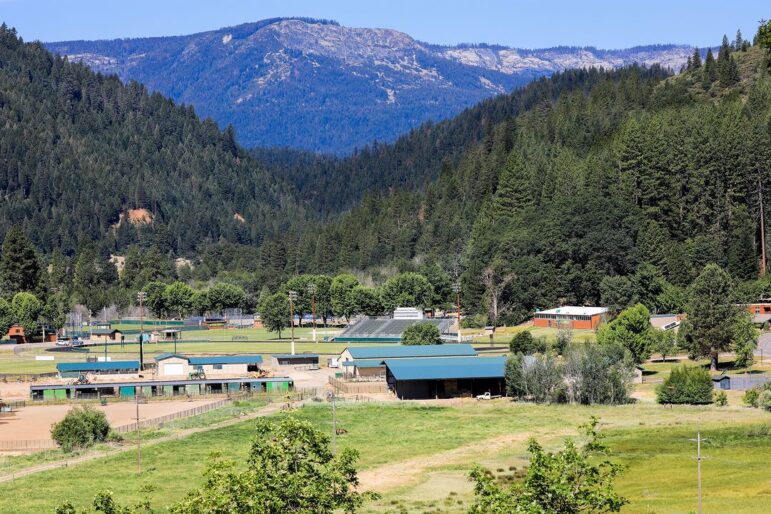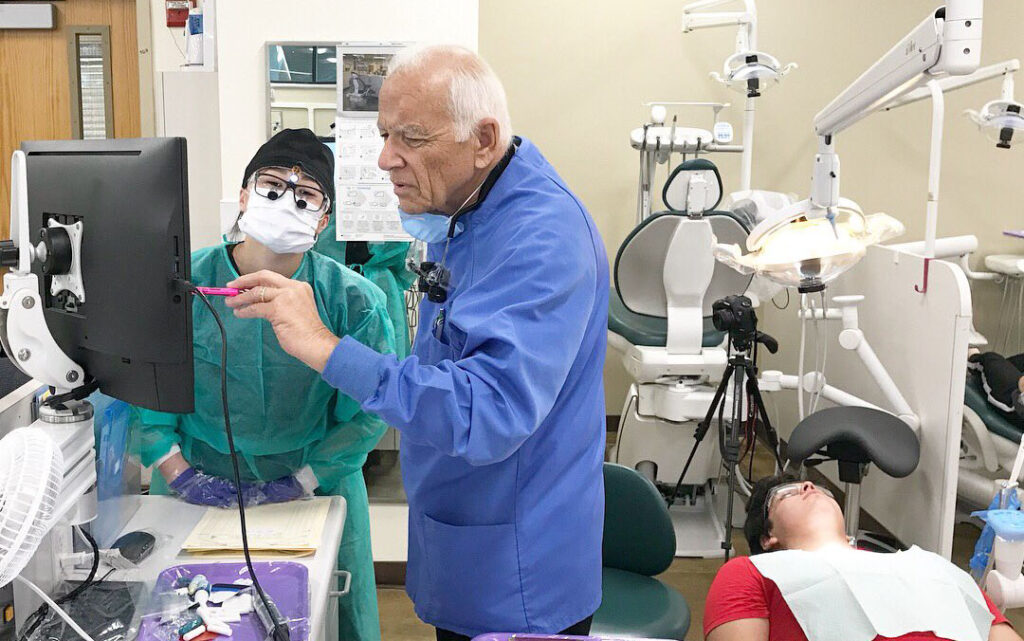In California, students seeking a bachelor’s degree are no longer restricted to pursuing one at the University of California, California State University or any other four-year university.
That’s because an increasing number of the state’s community colleges are now offering or will soon offer those degrees. From San Diego City College in the south to Shasta in the far northern part of the state, a total of 31 baccalaureate programs across 27 colleges are either currently available to students or have been approved and will soon be offered.
Those numbers are likely to continue to grow. Under a 2021 law, the state can approve up to 30 community college bachelor’s degrees annually, across two cycles each year. And demand is high: In the latest cycle, with 15 slots available, the community college chancellor’s office received applications for 29 programs from 26 colleges.
Why are these new community college programs necessary?
UC, CSU, and California’s private colleges already offer many bachelor’s degrees. Allowing community colleges to also offer baccalaureate degrees carries several benefits, including that they are more affordable and accessible to students, proponents say. The programs are also designed to place students in high-demand careers like dental hygiene and biomanufacturing.
The state’s first community college bachelor’s degrees were established in 2015 as part of a pilot program. Through that pilot, 15 programs were created. In a survey conducted by the participating colleges, 51% of students in the programs said they would not have pursued a bachelor’s degree if the program at their community college hadn’t been offered, according to the state’s Legislative Analyst’s Office.
In some cases, community college bachelor’s degrees provide an opportunity for a four-year degree to students in parts of the state that do not have a CSU or UC campus. For example, Shasta College in Redding and Feather River College in Quincy both offer bachelor’s degrees. Students pursuing those degrees would have to move away to earn a bachelor’s degree because there’s no UC or CSU in those regions of the state.
The relatively low price tag of a community college baccalaureate degree is also attractive to many students. (Specific details about the costs can be found later in this guide.) When the Legislative Analyst’s Office conducted an analysis of existing community college baccalaureate programs, “the most common benefit” they heard from students was the low cost of the programs. “Many had considered enrolling in private programs offering the same degree, but were hesitant to do so because of the cost,” the LAO wrote.
What programs exist now?
The following 15 programs were part of the pilot program that launched in 2015 and have now been offered to students for several years:
- Airframe manufacturing technology at Antelope Valley College
- Industrial automation at Bakersfield College
- Mortuary science at Cypress College
- Equine and ranch management at Feather River College
- Dental hygiene at Foothill College
- Biomanufacturing at MiraCosta College
- Respiratory care at Modesto College
- Automotive technology at Rio Hondo College
- Health information management at San Diego Mesa
- Occupational studies at Santa Ana College
- Interaction design at Santa Monica College
- Health information management at Shasta College
- Respiratory care at Skyline College
- Biomanufacturing at Solano College
- Dental hygiene at West Los Angeles College
Most of those programs offer at least some courses online, according to the LAO. That includes both of the dental hygiene programs, which students can complete entirely online if they choose.
The statewide community college’s board of governors began approving new programs last fall. Since then, 16 additional programs have been approved. Those programs are:
- Research laboratory technology at Bakersfield College
- Dental hygiene at Cerritos College
- Respiratory care at Crafton Hills College
- Automotive technology management at De Anza College
- Respiratory care at El Camino College
- Ecosystem restoration and applied fire management at Feather River College
- Respiratory care at Foothill College
- Dental hygiene at Fresno College
- Respiratory care at Hartnell College
- Respiratory care at Los Angeles Valley College
- Biomanufacturing at Moorpark College
- Histotechnology at Mt. San Antonio College
- Cyber defense and analysis at San Diego City College
- Dental hygiene at Taft College
- Automotive career education at Ventura College
- Aviation maintenance technology: avionics at West Los Angeles College

How does the cost compare to programs at four-year universities?
Students can earn a bachelor’s degree at a community college for just $10,560 in tuition fees, less than half of what it costs even at the state’s public universities. Lower-division courses at community colleges are $46 per unit, while the upper-division courses for the bachelor’s degree will run students the same $46 general enrollment fee plus a supplemental $84 fee per unit for a total of $130 per unit.
Students may also qualify to have their tuition fees waived entirely. Many community colleges offer state-funded grants that cover the general enrollment fees. Those grants don’t cover the supplemental costs for upper-division courses. However, students with financial need may qualify for a Cal Grant to cover the upper-division fees. Students should check with the financial aid office at their local college for more information about financial aid availability.
Is everyone who applies accepted into these programs?
Unlike traditional lower-division community college classes, the baccalaureate programs don’t have open enrollment. Similar to pursuing a bachelor’s degree at a four-year institution, students must apply to the programs, and not all are accepted. Depending on the program, filling out an application might require writing an essay and submitting a portfolio, things that aren’t necessary for most community college programs.
Each program has a limited number of spots. The programs are small, with an average enrollment of 24 students per cohort in the pilot programs.
In 2018-19, a total of about 600 students applied across the existing 15 programs, according to the LAO. About two-thirds of students were accepted and most of those students ended up enrolling.
A few programs, however, struggled with student demand. According to the LAO, six programs averaged cohorts of less than 15 students and had the capacity to enroll more students. The report did not identify those programs.
Students seeking admission details about a specific program should check with the college offering the degree.
Do the programs face any resistance from the state’s universities?
In some cases, the community college bachelor’s programs have received pushback from California’s public universities, specifically CSU. Earlier this year, CSU tried to block the approval of the applied fire management program at Feather River College, saying it duplicated a program offered at a CSU campus.
Under state law, CSU and UC can object to proposed programs if they believe the programs are duplicative of what they offer. Under the law, the university system with the objection is then supposed to work with the state community college chancellor’s office and establish a “written agreement” before the program is approved.
In the case of the Feather River program, CSU and the community college system weren’t able to come to an agreement, but the chancellor’s office moved ahead anyway and approved the program, to the frustration of CSU. That program will get underway this fall, with lower-division courses being offered to students. The college is currently developing the upper-division classes for the degree.
In the latest cycle of program applications this spring, CSU flagged an additional seven programs as being duplicative. Those programs are:
- Sustainable architecture at College of the Canyons
- Biomanufacturing at Los Angeles Mission College
- Applied cybersecurity and network operations at Moorpark College
- Stem cell and gene technologies at Pasadena City College
- Performance and production of electronic popular music at Rio Hondo College
- Public safety management at San Diego Miramar College
- Cloud computing at Santa Monica College
Those programs could still end up getting approved. The state chancellor’s office said in a report to its board of governors this week that it is currently working with CSU to collect more details about the duplication concerns and, if necessary, plans to “establish a written agreement that addresses the objections.” Under state law, the chancellor’s office has 30 days following receipt of the objection to convene with CSU and the colleges proposing the program and establish an agreement.
Can these programs be offered in any field?
Under state law, a community college proposing a bachelor’s degree must demonstrate that there is unmet workforce need in the local community where the degree is to be offered. Such evidence, according to the law, could include that local employers in a specific field are having trouble filling jobs that require a bachelor’s degree or that those employers are willing to pay employees more if they possess a bachelor’s degree than if they have an associate degree.
However, because the programs can’t duplicate what’s offered at CSU or UC, it does prevent the community colleges from offering degrees in certain fields with worker shortages, including teaching and health care.
Will your local community college be getting a bachelor’s degree program?
If you don’t see your community college listed above among the programs that have been approved or are currently under review, then there aren’t any bachelor’s degree programs at your college.
But that could change soon. Last month, the state chancellor’s office opened program applications for its next cycle. Those applications are due from colleges in September, and the board of governors must approve or reject them by the end of the year. The board can approve up to 15 programs.
